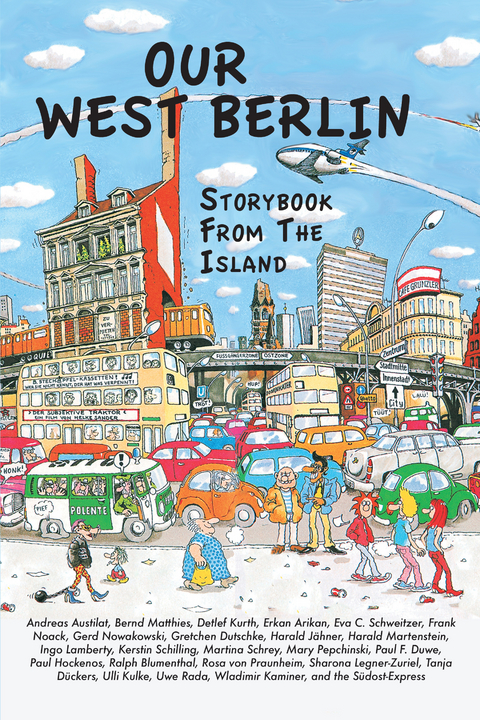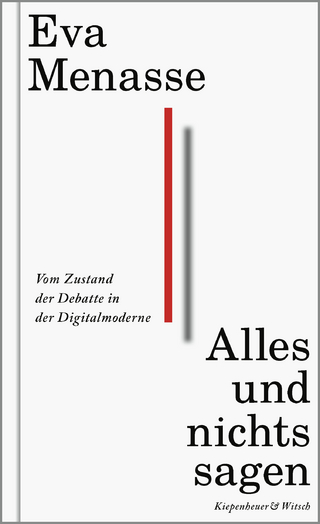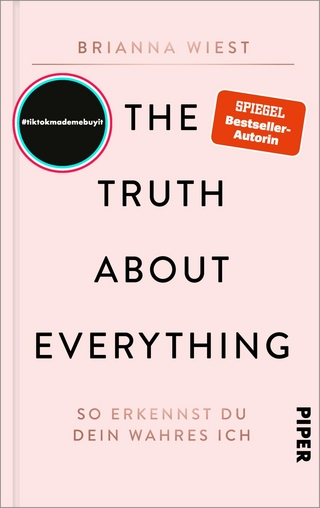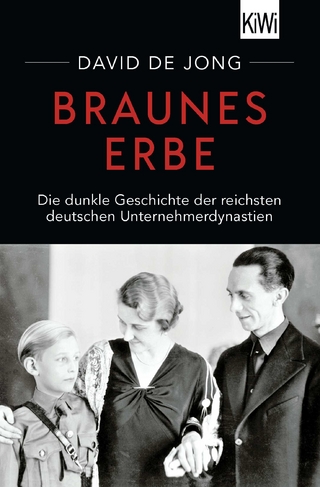
Our West Berlin
Berlinica Publishing (Verlag)
978-3-96026-067-7 (ISBN)
Eva C. Schweitzer moved from Munich to West Berlin in 1982, where she studied at the FU and wrote for the taz and Tagesspiegel. Today, she lives in Berlin and New York, where she did her dissertation. She writes for Kleine Zeitung, Cicero and Baumeister and has published twelve books, most recently Links Blinken, Rechts Abbiegen (Westend, Frankfurt). She also runs the Berlinica publishing house.
Gerhard Seyfried is one of Berlin's best-known caricaturists; he has lived in West Berlin since 1976. He is famous for his drawings and hidden object pictures from the Kreuzberg leftwing milieu. He has published a total of fifteen comic book albums. Born in Munich, where he became a trained graphic artist, he began his career at the city magazine "Blatt". He has also published four historical novels. He owns a collection of international police stars.
Ralph Blumenthal, a Distinguished Lecturer at Baruch College of the City University of New York, was an award-winning reporter for The New York Times from 1964 to 2009, and has written and co-authored seven books on organized crime and cultural history. He co-authored a series of groundbreaking Times articles on the secret Pentagon program to investigate UFOs.
Paul Hockenos, born in Boston in 1963, has lived in Berlin as a correspondent since 1989. He has written for The Nation, Foreign Policy, Foreign Affairs, The New York Times and the digital CNN. He has authored several books on European politics and was a fellow at the American Academy in Berlin. His book Berlin Calling was published by The New Press in 2017.
Wladimir Kaminer hails from Moscow where he was born in 1967. Since the fall of the Wall, he has lived in Berlin. He has authored more than thirty books, including the bestseller Russendisko that was turned into a very successful movie. He also produces Kaminer Inside for the public brodcaster 3 SAT. The film series is about traditional cultural venues that showcase modern art.
Rosa von Praunheim, director, author, and winner of many film awards, is considered an important representative of the post-modern German film scene and a pioneer of the gay and lesbian movement. In over fifty years he has made more than one hundred fifty movies. Born Holger Mischwitzky in 1942 in Riga, Latvia, he grew up in Frankfurt / Main and has lived in Berlin since the sixties.
Tanja Dückers was born in 1968 in West Berlin. Today she lives with her family in East Berlin. She has published seventeen books. As a journalist, she writes about social and political topics for Der Tagesspiegel and ZEIT Online, among other publications. She has lived in the USA several times as a writer-in-residence. Since 2016 she has been working for Weiter Schreiben mentoring refugee writers.
Born in 1955 in Yonkers, NY, Mary Pepchinski studied at Columbia University and worked as an architect in New York. 1987, she relocated to West Berlin. Now retired, she was a professor in Dresden and held guest professorships in Mainz and Graz, Austria. She publishes widely about architecture. In 2017, she was an advisor to the “Frau Architekt“ exhibition at DAM in Frankfurt / Main. Photo: private
Harald Martenstein, born in 1953, is the author of the “Martenstein” column in ZEITmagazin and also an editor at the Berlin daily Die Welt. In 2004, he received the Egon Erwin Kisch Prize. In addition to his award-winning novel Heimweg, several of his collections of columns have appeared as a book, including Männer sind wie Pfirsiche and Jeder lügt so gut er kann. Photo: C. Bertelsmann Verlag
Andreas Austilat, born in Berlin-Lichterfelde, is a reporter for Der Tagesspiegel, where his column “Austilat spart sich’s“ appears regularly. He has published several books, among them Hotel kann jeder about the joys of camping, Vom Winde gesät, about gardening and Mark Twain in Berlin. His last book is Auch das geht vorbei, a book about men navigating their midlife crisis.
Sharona Legner-Zuriel was born in Haifa, Israel in 1955 and grew up in West Berlin. After a foray into law, she was a reporter for Volksblatt Berlin and Berliner Morgenpost. She also worked for the Quadriga-award, the Hasso Plattner Forum, and new formats. She was married to journalist Johann Legner, they have two sons. In August 2023, one day before her 68th birthday, she passed away in Berlin.
Gretchen Dutschke was born in Illinois in 1942. After her bachelor in 1963, she studied theology in Germany. There she met Rudi Dutschke; they married in 1966 and have three children. In 1985, five years after Rudi’s death, she went to the U.S., but returned to Berlin in 1990. She has written a biography about her husband and has also published the book 1968: What We Can Be Proud Of. Photo: private
Erkan Arikan grew up in Berlin and studied law at Free University. From 1999 to 2003, he worked for the news channel n-tv, where he had also done his traineeship. From 2003 to 2018, he headed the Turkish editorial department of the public broadcaster WDR. In November 2018, he was hired by Deutsche Welle, where he became head of the Turkish editorial department.
Ingo Lamberty, born 1959, grew up in a water mill in the Westerwald and studied in Mainz and Berlin. From 1985, he reported illegally from the GDR for the taz. In 1989 he became a reporter at Der Tagesspiegel, where he received the prestigious Theodor Wolff Prize. Since 1992 he has worked in TV, first at VOX, then at WDR for Morgenmagazin. He is married with one son and lives in Cologne. Photo: private.
Martina Schrey, born in 1963, is a staffer at RBB’s Inforadio. She has decades of experience working for radio, TV, print and online media. Her career started at Radio 100, a now-defunct leftwing Berlin station. She is also a trained nurse who was awarded the Christopherus Prize, the author of four books for young people, and a fan of women’s soccer. She has two daughters.
Harald Jähner, born in 1953 in the Ruhr region, studied literature, history and art in Freiburg and earned his doctorate in Berlin. He began as a journalist, then headed the press department of the House of World Cultures from 1989 to 1997. At Berliner Zeitung he headed the art section from 2003 to 2015. Today he is an honorary professor at the University of Fine Arts in Berlin.
Uwe Rada, born in Göppingen in 1963, is a reporter at the daily paper taz and an author. His focus is on urban development and Eastern Europe. He has written three books about three European rivers, the Oder, Memel and Elbe. In 2017 his debut novel 1988 was published by Edition Fototapeta. Rada has lived in West Berlin since 1983 and in Grunow, Brandenburg, since 2019.
Ulli Kulke, born in 1952, lives as a reporter and author in Berlin. Until 2016, he was employed by Die Welt, after he was a staff writer for taz, Natur, Wochenpost and the magazine Mare. He wrote pieces for magazines, including SZ and ZEIT magazines, Playboy, National Geographic, FAZ and Spiegel. His main focus as a book author is the history of discovery and lunar travel.
Paul F. Duwe, born in 1953 in the GDR, grew up in Mecklenburg. He left the country in 1971 for West Germany after his father, a political prisoner, was released. He studied journalism at Free University in West Berlin and worked as a Metro reporter for Spandauer Volksblatt. Since 1986, he has been a freelance journalist. His first novel Petermännken was published in 2008.
Detlef Kurth, born in 1966, studied urban and regional planning at the Techical University Berlin. In 1992, he started working at Planergemeinschaft Berlin and became a research assistant at TU Dortmund soonafter. From 2003 he was a professor of urban planning at HfT Stuttgart and since 2017 at TU Kaiserslautern. He publishes on urban renewal and the turning point of 1989.
Frank Noack, born in Berlin in 1961, is a freelance writer specializing in film history. His latest book, Veit Harlan. The Life and Work of a Nazi Filmmaker (University Press of Kentucky 2016), was a finalist for the Richard Wall Memorial Award. He has reviewed films for Der Tagesspiegel, Rheinische Post, and Siegessäule, and is also the author of Emil Jannings. Der erste deutsche Weltstar (2012).
Kerstin Schilling was born in the Berlin district of Reinickendorf in 1962 and has spent almost her entire life in West Berlin. She published Happy Island—Generation West Berlin. As a cultural manager, she has worked in East and West Germany, in both parts of the city, and in France. For seven years, her office was in Potsdam, but her residence is in the district of Schöneberg.
Bernd Matthies, born in 1953, learned to read at elementary school in the district of Tempelhof, where he grew up, and to write at the Henri Nannen School for Journalism in Hamburg. Since 1983, the journalist has worked in various capacities for the Berlin daily paper Tagesspiegel, where he still writes satirical pieces, essays, commentaries and restaurant reviews.
Gerd Nowakowski was born and raised in Berlin. The mechanical engineer was part of the founding generation of the leftwing daily newspaper taz. For many years, he was bureau chief in Bonn when the city was the capital of Germany. After the Wall came down, he was the editor of the Berlin Metro section. At the Berlin daily Tagesspiegel, he headed the editorial department as managing editor.
| Erscheinungsdatum | 01.12.2023 |
|---|---|
| Mitarbeit |
Cover Design: Gerhard Seyfried |
| Übersetzer | Cindy Opitz |
| Verlagsort | New York |
| Sprache | englisch |
| Original-Titel | Unser West-Berlin |
| Maße | 152 x 229 mm |
| Gewicht | 400 g |
| Themenwelt | Literatur ► Essays / Feuilleton |
| Schlagworte | Berlin • Cold War • Counter Culture • East Germany • Germany • Protests • Squatters • Vietnam • Wall |
| ISBN-10 | 3-96026-067-9 / 3960260679 |
| ISBN-13 | 978-3-96026-067-7 / 9783960260677 |
| Zustand | Neuware |
| Haben Sie eine Frage zum Produkt? |
aus dem Bereich


